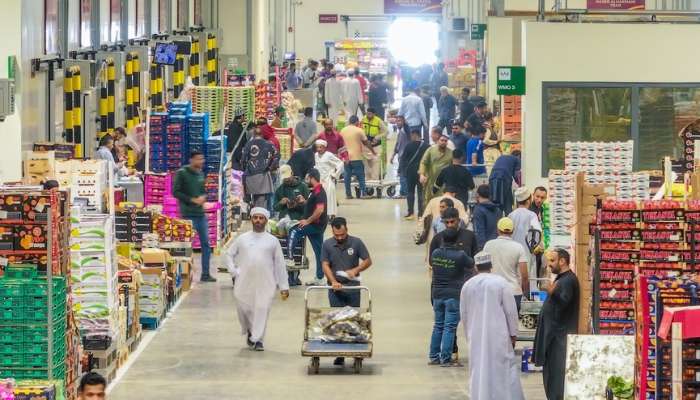MUSCAT: As the holy month of Ramadan draws near, markets across Oman are experiencing a surge in purchasing activity, with shops and shopping centres preparing for a significant increase in demand for food supplies.
In particular, essential commodities like fruits and vegetables are expected to see a sharp rise in demand. To meet this, various stakeholders are proactively working to ensure that food items remain both available and affordable throughout the month.
Othman bin Ali al Hatali, Director of Operations at the Central Fruits and Vegetables Market (Silal), outlined the preparations to ensure a steady supply of both local and imported produce.
From February 10 to 17, 2025, a total of 236 trucks delivered 5,970 tons of imported fruits and vegetables, while 3,160 tons of local agricultural products arrived, ensuring the market can meet the expected Ramadan demand.
The market has also optimized its operations by establishing specific delivery hours for smooth processing. Trucks carrying wholesale goods will be received between 4 am and 2 pm, while local agricultural products will be accepted in two shifts: from 4 am to 1 pm and 5 pm to 11 pm. These hours will be in effect throughout the week, excluding Fridays.
In addition to these logistics efforts, health and safety are top priorities. Silal’s team continuously monitors hygiene standards and works closely with government agencies, including the Royal Oman Police and the Ministry of Agriculture, Fisheries, and Water Resources, to maintain a stable market. Over 180 product samples have already been tested for safety, ensuring the quality of produce for consumers.
To support market stability during Ramadan, the Directorate General of Consumer Protection Authority in Dhofar Governorate is ramping up its efforts. This includes monitoring commodity prices, controlling expired goods, and conducting market surveys to prevent misleading promotional offers.
Health authorities are on high alert, with the Dhofar Municipality’s Health Control Department launching inspection campaigns to ensure food safety, particularly in high-demand sectors such as meat sales, bakeries, and restaurants. Their aim is to guarantee that food establishments meet health regulations, ensuring safe and healthy food for all consumers.
The Ministry of Agriculture, Fisheries and Water Resources has also assured the public of a steady supply of live meat and fish, with a particular focus on maintaining stable prices. Since February 1, the Sultanate has imported 169,200 heads of live livestock, including cows, sheep, and goats. Fish will continue to be available in the markets, even in the event of adverse weather conditions.
The Consumer Protection Authority is intensifying its efforts to prevent price manipulation and monitor food prices across both small and large shopping centers. It will also focus on preventing deceptive advertising, particularly surrounding Ramadan promotions. The Authority is conducting awareness campaigns to ensure that consumers are not misled by false advertising.
Additionally, to support low-income families, the CPA has launched the ‘Ramadan Basket’ initiative in collaboration with private entities. The initiative provides discounted food baskets, helping to alleviate the financial strain on families during this sacred month. The CPA is also committed to preventing price inflation during this high-demand period, ensuring fair prices for all.
